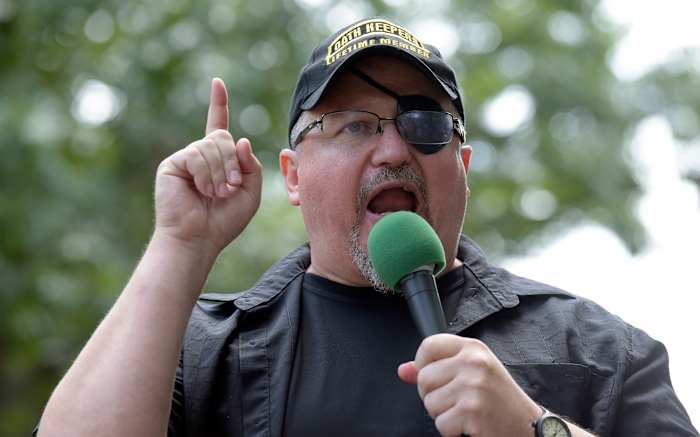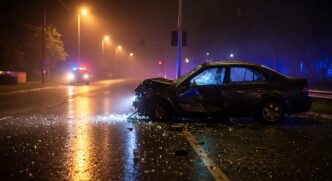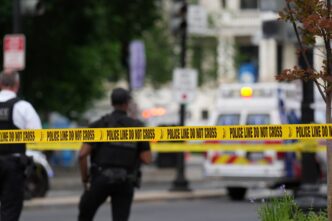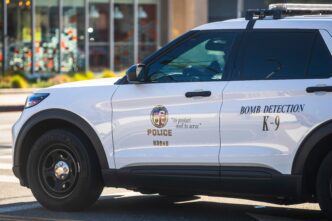In a significant statement from the judiciary, a federal judge declared that any move to pardon Stewart Rhodes, the leader of the anti-government Oath Keepers, for his role in the Capitol riot plot would be deeply concerning. This comes in the wake of President-elect Donald Trump’s repeated assertions to pardon those involved in the January 6th insurrection, highlighting a potential clash between judicial sentiment and political intentions.
Stewart Rhodes, currently serving an 18-year sentence, was convicted for seditious conspiracy, marking one of the most severe charges related to the January 6, 2021 incident. His conviction underscores the gravity of orchestrating a plot to maintain Donald Trump’s presidency following his electoral defeat in 2020.
During the sentencing of former Oath Keeper member William Todd Wilson, U.S. District Judge Amit Mehta commented on the disturbing implications of a potential pardon for Rhodes. “The notion that Stewart Rhodes could be absolved of his actions is frightening and ought to be frightening to anyone who cares about democracy in this country,” Mehta stated, emphasizing the broader impact on democratic principles.
Wilson, who cooperated with the Justice Department, received a comparatively lighter sentence of a year under house arrest and three years of probation. His case is noted for his admission of guilt, a contrast to many others involved who did not acknowledge their wrongdoing. However, Wilson’s credibility was questioned due to inconsistencies in his statements, affecting his standing as a witness.
The debate over pardons extends beyond Rhodes. U.S. District Judge Carl Nichols, another federal judge, expressed frustration at the prospect of blanket pardons for those involved in the Capitol riot. Nichols, appointed by Trump, highlighted that such actions would be “beyond frustrating and disappointing.” This judicial pushback reflects widespread concern within the federal courts about the potential for mass pardons, which could undermine legal proceedings and the seriousness of the charges faced by many involved.
Trump has consistently referred to the rioters as “patriots” and “hostages,” stating his intention to pardon them if deemed innocent. His campaign rhetoric also hinted at the possibility of pardoning Enrique Tarrio, a former leader of the Proud Boys, who received a 22-year sentence for attempting to halt the transition of power to President Joe Biden.
The judicial response has been firm, with more than 20 judges overseeing upwards of 1,500 cases related to the riot. While many defendants have sought to delay their cases until after the political climate changes, these requests have largely been denied, signaling a judicial commitment to proceeding with justice regardless of political developments.
The tragic events of January 6, coupled with the potential executive clemency, pose complex legal and ethical questions. As the judiciary continues to navigate the aftermath, the tension between judicial decisions and potential executive actions remains a critical issue for the U.S. legal system.
The discourse surrounding possible pardons for January 6th participants, particularly Stewart Rhodes, encapsulates a broader debate on justice and accountability. As judicial figures articulate their concerns, the intersection of political promises and legal consequences will continue to shape the narrative of one of the nation’s most challenging democratic trials. The resolution of these issues will likely influence future interpretations of justice in the context of political power and public safety.
Source: News4jax








